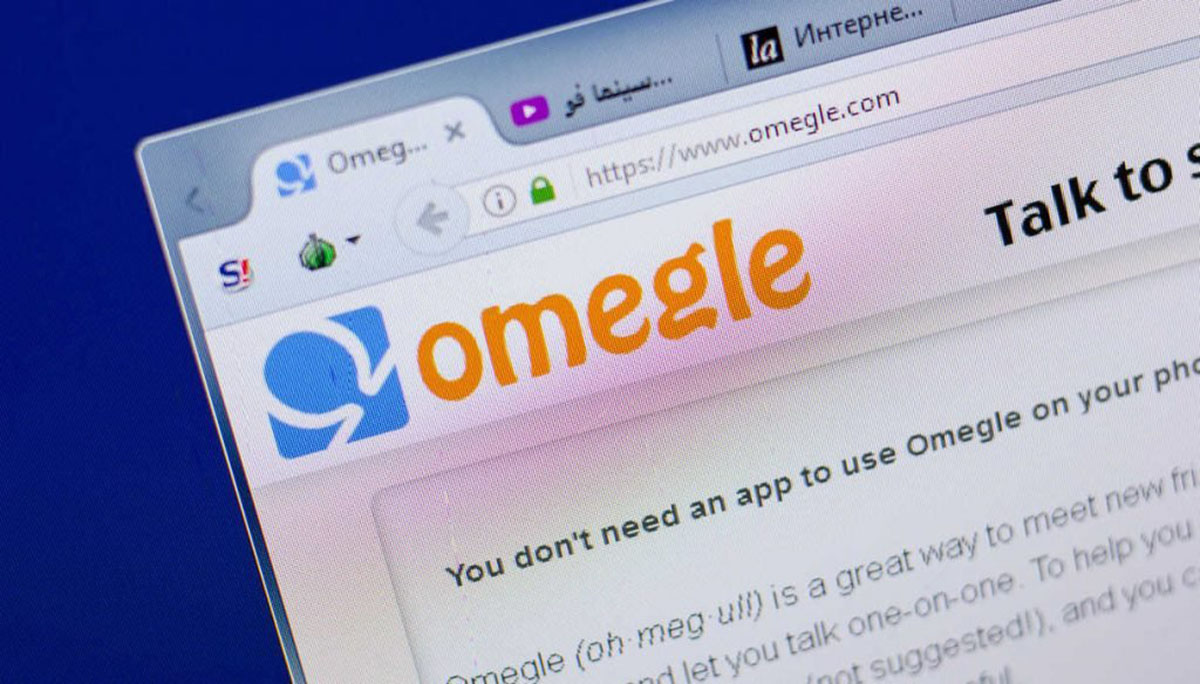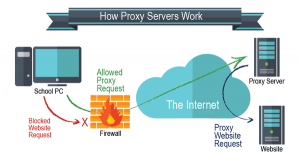Introduction
Your IP address is a unique identifier that is assigned to your device when you connect to the internet. It acts as your digital signature, allowing you to send and receive data online. While most people may not give much thought to their IP address, it plays a crucial role in determining your online experience and can have implications for your privacy and security.
In this article, we will explore the various ways in which people can use your IP address and the potential risks associated with it. Understanding these risks will empower you to take appropriate measures to protect yourself and your online activities.
From tracking your physical location to collecting information about you, there are several ways that individuals and organizations can take advantage of your IP address. By accessing this information, they can obtain personal and financial details, initiate cyber attacks, and even restrict your internet access.
While it may be unsettling to think about the potential misuse of your IP address, it’s important to be aware of the risks and take proactive steps to protect your online presence. In the following sections, we will delve into each of these areas in more detail and provide practical tips on safeguarding your IP address.
By the end of this article, you will have a better understanding of the potential hazards associated with your IP address and be equipped with the knowledge to protect yourself from these threats. Whether you are an individual internet user or a business, taking proactive measures to safeguard your IP address is crucial in today’s digital landscape.
Tracking Your Physical Location
One of the most concerning uses of your IP address is the ability to track your physical location. Websites and online services can gather this information to deliver location-specific content or to target you with advertisements based on your location. While this may be convenient for some users, it can also pose a risk to your privacy.
By analyzing your IP address, organizations can determine your approximate geographical location. This information can be used to create a profile about your online activities, preferences, and even your daily routines. It can also allow third parties to track your movements, putting your safety at risk.
For instance, advertisers may use your IP address to display location-based ads, such as local deals or services. On the other hand, malicious entities could use this information to track your physical whereabouts, which can lead to stalking or other intrusive activities. Additionally, government agencies or law enforcement may use your IP address to gather intelligence or monitor your online activities.
To mitigate the risk of your IP address being used to track your physical location, there are steps you can take. One option is to use a virtual private network (VPN) to mask your IP address. A VPN will route your internet traffic through a secure server, effectively hiding your real location and providing an additional layer of privacy.
Another precautionary measure is to be mindful of the information you share online. Avoid posting your exact location on social media platforms, and be cautious when providing personal details on websites that may not have robust privacy measures in place.
It’s important to note that while these measures can help protect your privacy to some extent, they are not foolproof. Sophisticated tracking techniques can still trace your online activities in certain circumstances. Therefore, it’s crucial to be vigilant and stay informed about current privacy concerns and solutions.
Collecting Information about You
Another way that people can use your IP address is by collecting information about you. When you visit a website or interact with online services, your IP address can be logged and used to gather data about your browsing habits, preferences, and even personal information.
Websites and online platforms often use analytics tools to track user behavior and gain insights into their audience. This data can help them tailor their content, improve user experience, and target advertisements more effectively. However, it’s crucial to understand that this can also result in a loss of privacy if not handled responsibly.
By analyzing your IP address, websites can collect information such as the pages you visit, the duration of your visits, and the actions you take on their site. This data is often used to create personalized user profiles, which can then be utilized for targeted advertising or even sold to third parties.
Furthermore, some websites may use techniques like IP fingerprinting to gather additional information about you. This involves analyzing various parameters associated with your IP address, such as your browser type, operating system, and even screen resolution. By combining these details with other data points, a more comprehensive profile of your online habits can be created.
To mitigate the risk of your IP address being used to collect information about you, there are preventive measures you can take. Firstly, consider using privacy-focused web browsers and browser extensions that block tracking cookies and prevent data collection.
Additionally, regularly reviewing and adjusting your privacy settings on websites and online platforms can help control the information that is collected about you. Opting out of personalized ads and carefully reviewing the privacy policies of websites you visit can also provide some level of protection.
Lastly, using a reputable virtual private network (VPN) can add an extra layer of security and privacy. A VPN can encrypt your internet traffic and mask your IP address, making it more difficult for websites and online platforms to track and collect information about you.
By being aware of the information that can be gathered through your IP address and taking proactive steps to protect your privacy, you can have more control over the data that is collected about you online.
Hacking and Cyber Attacks
Your IP address can also make you vulnerable to hacking and cyber attacks. Hackers and malicious entities can leverage your IP address to gain unauthorized access to your devices, steal your personal information, or launch targeted attacks.
For example, using your IP address as a starting point, attackers can conduct network scans and exploit vulnerabilities in your system’s security. Once they gain access to your device, they can install malware, steal sensitive data, or even take control of your device remotely.
In more sophisticated attacks, hackers may use your IP address to launch targeted attacks, such as distributed denial of service (DDoS) attacks. By flooding your device or network with an overwhelming amount of traffic, these attacks aim to disrupt your online activities or bring down your website.
Furthermore, your IP address can also be used as a stepping stone to launch attacks on other devices or networks. By compromising your device, attackers can gain a foothold and use it to spread malware or participate in botnets, which are networks of infected devices controlled by a central entity.
To protect yourself from such hacking and cyber attacks, it is essential to prioritize cybersecurity. Keep your devices up to date with the latest security patches and use robust and reputable antivirus software. Additionally, ensure that your network is secured with strong passwords and encryption.
Being cautious of suspicious emails, links, and downloads is also crucial. Phishing attacks often rely on tricking users into revealing their personal information or installing malware through deceptive emails or websites.
Using a firewall can add an extra layer of protection by monitoring and controlling incoming and outgoing network traffic. It acts as a barrier between your devices and the internet, blocking unauthorized access attempts.
Lastly, it is vital to educate yourself about common cyber threats and stay updated on the latest security practices. By being aware of the risks and taking necessary precautions, you can significantly reduce the chances of falling victim to hacking and cyber attacks.
Denial of Service Attacks
Denial of Service (DoS) attacks can cause significant disruption to your online experience and can be initiated using your IP address. In a DoS attack, the attacker floods your network or device with a massive volume of traffic, rendering it overwhelmed and unable to respond to legitimate requests.
One of the primary motivations behind DoS attacks is to disrupt the availability of a website, service, or network. By inundating the target with a barrage of requests, the attacker can exhaust system resources or overload network bandwidth, causing the website or service to become unresponsive or crash.
Your IP address can be used as a target in a DoS attack. Attackers can identify your IP address and direct a flood of traffic towards it, overwhelming your network connection and rendering your internet access unusable. This can have significant implications for individuals and businesses, leading to downtime, loss of productivity, and potential financial losses.
DoS attacks can be stressful and frustrating, but there are measures you can take to protect yourself. Implementing a firewall or a DoS protection system can help detect and mitigate such attacks by filtering out malicious traffic and allowing only legitimate requests to reach your network.
Additionally, working with a reputable web hosting provider or utilizing Content Delivery Networks (CDNs) can help distribute the traffic across multiple servers and absorb the impact of a DoS attack.
Monitoring your network traffic can also help detect and respond to abnormal patterns that may indicate an ongoing DoS attack. Utilize network monitoring tools that can alert you to suspicious activity and allow you to take appropriate action to mitigate the attack.
Furthermore, having a robust incident response plan in place can help minimize the impact of a DoS attack. This plan should include steps to isolate affected devices or servers, contact your internet service provider (ISP) for assistance, and report the attack to the appropriate authorities.
By implementing preventive measures and responding effectively to DoS attacks, you can minimize the disruption caused by such incidents and ensure the availability of your online resources.
Obtaining Personal and Financial Information
Your IP address can also be exploited to obtain your personal and financial information. Attackers can use various methods to gather sensitive data, such as login credentials, credit card numbers, and personal identification information.
One way this can happen is through phishing attacks. Phishing emails, disguised as legitimate communications from trusted sources, often contain links to fake websites that are designed to trick you into revealing your personal information. By clicking on these links and entering your details, you unknowingly provide attackers with access to your sensitive information.
Additionally, attackers can use your IP address to target vulnerabilities in your system’s security. They can send malicious files or exploit software vulnerabilities to gain unauthorized access to your device or network. Once they have access, they can install keyloggers or other forms of malware to capture your keystrokes and steal your login credentials or financial details.
To protect yourself from falling victim to such attacks, it is crucial to practice good cybersecurity hygiene. Be cautious of unsolicited emails and avoid clicking on suspicious links or downloading attachments from unknown sources.
Ensure that your devices are protected with up-to-date antivirus software to detect and prevent malware infections. Regularly monitor your financial accounts for any unusual activity and report any suspicious transactions to your bank or financial institution.
Using strong and unique passwords for each online account is also essential. Consider using password managers to securely store your passwords and enable two-factor authentication whenever possible for an extra layer of security.
Furthermore, be vigilant when providing personal or financial information online. Ensure that you are on legitimate websites by checking for secure connections (https://) and verifying the website’s authenticity before entering any sensitive data.
By adopting these best practices and staying informed about the latest phishing techniques, you can protect yourself from falling victim to scams and prevent the unauthorized access of your personal and financial information.
Internet Service Provider Restrictions
Your IP address can also be a factor in facing internet service provider (ISP) restrictions. ISPs have the ability to monitor and control your internet access based on your IP address, which can impact your online experience and limit your access to certain content or services.
ISPs might impose restrictions based on factors such as geographic location, government regulations, or their own policies. For example, certain regions or countries may have censorship laws that restrict access to specific websites or online content. These restrictions are often implemented by blocking access to websites or filtering certain types of content.
Moreover, ISPs may employ traffic shaping or throttling techniques, where they limit the speed or bandwidth of certain types of internet traffic. This can result in slower streaming speeds, difficulty accessing certain online services, or experiencing delays in data transfers.
In some cases, ISPs may limit access to specific online services or charge extra fees for accessing certain types of content, such as streaming services or online gaming platforms. These restrictions, often referred to as “net neutrality” concerns, can affect the availability and affordability of certain online services.
To address ISP restrictions, you can explore using a virtual private network (VPN). A VPN encrypts your internet traffic and routes it through a server in a different location, masking your IP address from your ISP. This can help bypass censorship and access restricted content.
However, it’s important to note that while VPNs can provide a workaround for ISP restrictions, they may still be subject to restrictions themselves. Some countries have implemented measures to block or limit access to VPN services, so it’s essential to research and choose a reliable VPN service that is known to work effectively.
Additionally, staying informed about the policies and practices of your ISP is crucial. Keep an eye out for any changes in their terms of service or privacy policies that may impact your internet access or online activities.
If you encounter restrictions that you believe are unjust or inhibiting your online freedom, you can voice your concerns to your ISP or participate in advocacy efforts to promote open and neutral access to the internet.
By being aware of ISP restrictions and exploring available solutions, you can maintain greater control and freedom over your online activities.
Protecting Your IP Address
Protecting your IP address is crucial for maintaining your online privacy and security. By implementing a few key measures, you can safeguard your IP address and reduce the risk of it being misused or exploited:
1. Use a Virtual Private Network (VPN): A VPN encrypts your internet traffic and masks your IP address by routing it through a secure server. This helps protect your online activities from prying eyes and provides an additional layer of anonymity.
2. Keep Your Devices and Software Updated: Regularly update the operating system, applications, and security software on your devices. Keeping them up to date ensures that you have the latest security patches and protection against known vulnerabilities.
3. Use Strong and Unique Passwords: Avoid using easily guessable passwords and opt for strong, unique passwords for each online account. Consider using a password manager to securely store and manage your passwords.
4. Be Cautious of Public Wi-Fi: Public Wi-Fi networks pose security risks, as they can be targets for hackers. Avoid accessing sensitive information or conducting financial transactions when connected to public Wi-Fi. If necessary, use a VPN to add an extra layer of security.
5. Be Mindful of what You Share Online: Be cautious about the personal information you share online, including on social media platforms. Avoid posting your exact address, phone number, or other sensitive details that can be exploited to track or target you.
6. Regularly Check Privacy Settings: Review and adjust the privacy settings on your devices, applications, and online accounts. Limit the amount of personal information that is shared and ensure you are comfortable with the level of data collection and sharing.
7. Use Two-Factor Authentication: Enable two-factor authentication whenever possible. This adds an extra layer of security by requiring a second form of verification, such as a unique code sent to your mobile device, in addition to your password.
8. Be Wary of Phishing Scams: Be cautious of unsolicited emails or messages that ask for personal information or contain suspicious links. Verify the legitimacy of the sender and avoid clicking on unknown or suspicious links.
9. Educate Yourself about Online Security: Stay informed about current online security threats and best practices. Regularly update your knowledge and seek reputable sources for information on how to protect your IP address and overall online presence.
By following these practices and staying vigilant, you can significantly enhance the protection of your IP address and reduce the risk of potential misuse or exploitation.
Conclusion
Understanding the various ways in which people can use your IP address is crucial in today’s digital landscape. From tracking your physical location to collecting information about you, it’s important to be aware of the potential risks and take proactive measures to protect yourself.
By tracking your physical location, individuals and organizations can gain insights into your daily routines and potentially compromise your safety. By collecting information about you, your IP address can be used to create personalized user profiles or, in worse cases, fall into the hands of malicious entities looking to exploit your personal and financial details.
Hacking and cyber attacks pose a significant threat when it comes to your IP address. Attackers can target your device, install malware, or even launch denial of service attacks, disrupting your online experience and potentially compromising your sensitive information.
Moreover, internet service provider (ISP) restrictions and limitations can impact your internet access and freedom online. Understanding these restrictions and exploring solutions such as VPNs can help bypass censorship and regain control over your access to certain content.
Protecting your IP address is vital for maintaining your online privacy and security. By utilizing tools such as VPNs, regularly updating your devices and software, and being cautious about sharing personal information, you can significantly reduce the risk of misuse or exploitation of your IP address.
It is important to stay informed about current online security threats and best practices. By educating yourself and implementing the necessary security measures, you can enjoy a safer and more secure online experience.
Remember, your IP address is a valuable piece of information that can reveal a lot about you. Take control of your online presence and prioritize your privacy and security by protecting your IP address.

























